Max Planck: Pioneer of Quantum Theory, Discovery of Planck’s Constant, and Its Contributions and Impact
イントロダクション
プランクは、20世紀初頭に量子論を確立することで知られる物理学者であり、その功績は計り知れません。
彼はプランク定数を発見し、光の量子性を示すことに成功しました。
この発見は、物理学の基礎を根底から覆すものであり、新たな時代を切り開きました。
プランクの研究は、現代の科学においても重要な役割を果たしており、その影響力は計り知れません。
彼の功績について詳しく見ていきましょう。
Introduction
Max Planck, renowned physicist of the early 20th century, is celebrated for establishing quantum theory, a monumental achievement in physics.
He discovered Planck’s constant and successfully demonstrated the quantum nature of light.
This discovery fundamentally challenged the foundations of physics and ushered in a new era.
Planck’s research continues to play a crucial role in modern science, underscoring his profound influence.
Let’s delve into his contributions in more detail.
プランク:量子論の創始者の一人としての彼の貢献
プランクは、ドイツの物理学者であり、量子論の創始者の一人として知られています。
彼の貢献は、科学界に大きな影響を与えました。
プランクは1858年に生まれ、1947年に亡くなりました。
彼は物理学の分野で多くの業績を残し、その中でも最も有名なのは量子論の創始者としての役割です。
量子論の創始者としてのプランク
プランクは、1900年に「プランク定数」という概念を提唱しました。
これは、エネルギーの量が連続的ではなく、離散的な値を取ることを示しています。
この考え方は、当時の物理学界に大きな衝撃を与えました。
プランクの発見は、後の量子力学の基礎となりました。
彼の研究は、光の量子性やエネルギーの量子化といった重要な概念を明らかにしました。
これにより、物理学は新たな方向性を示し、現代の科学の発展に大きく貢献しました。
プランクの量子論の創始者としての貢献は、彼の名前を不朽のものとしました。
彼の業績は、現代の物理学の基礎を築き上げる上で欠かせないものとなっています。
彼の研究は、私たちの世界観を変えるほどの重要性を持っています。
プランクとは?
プランクは、量子論の創始者の一人として非常に重要な役割を果たしました。
彼は、物理学者であり、その業績は非常に大きな影響を与えました。
まず、プランクとは何かについて説明します。
彼は、ドイツの物理学者であり、19世紀末から20世紀初頭にかけて活躍しました。
彼の最も重要な業績は、プランク定数の発見です。
この定数は、量子力学の基礎となるものであり、物質のエネルギーが離散的なパケット(量子)であることを示しています。
量子論の創始者の一人として、プランクは物理学の世界に革命をもたらしました。
彼の業績によって、物理学者たちは物質やエネルギーの微視的な振る舞いを理解することができるようになりました。
これは、現代の科学技術の基礎となっており、私たちの生活にも大きな影響を与えています。
プランクの量子論の発見は、光の波動性と粒子性の矛盾を解決する重要な手がかりとなりました。
彼の理論は、光が離散的なエネルギーのパケットである光子として振る舞うことを示しました。
これにより、光の性質や振る舞いをより正確に説明することができるようになりました。
さらに、プランクの業績は量子力学の発展にも大きな影響を与えました。
彼の理論は、後の量子力学の基礎となる重要な考え方を提供しました。
量子力学は、原子や分子などの微視的な世界の振る舞いを記述するための理論であり、現代の物理学の中心的な分野です。
プランクの貢献によって、私たちは物質やエネルギーの本質をより深く理解することができるようになりました。
彼の業績は、現代の科学の基礎を築いたと言っても過言ではありません。
彼の量子論の発見は、物理学の世界に大きな変革をもたらし、私たちの知識や技術の進歩に寄与しています。
Introduction
Max Planck, known as one of the founders of quantum theory, was a German physicist whose contributions have had immeasurable impact on the scientific community.
Born in 1858 and passing away in 1947, Planck left behind a legacy of significant achievements in the field of physics, most notably as a pioneer of quantum theory.
Planck as a Founder of Quantum Theory
In 1900, Planck introduced the concept of “Planck’s constant,” demonstrating that energy is not continuous but exists in discrete packets.
This groundbreaking idea shook the physics community at the time and laid the foundation for later developments in quantum mechanics.
His research illuminated crucial concepts such as the quantum nature of light and the quantization of energy, propelling physics into new directions and greatly contributing to the advancement of modern science.
Planck’s contributions as a founder of quantum theory cemented his name as an enduring figure.
His studies are indispensable in establishing the fundamentals of contemporary physics and have profound implications for our understanding of the world.
Who Was Planck?
Planck played a pivotal role as one of the founders of quantum theory.
As a physicist, his contributions had a profound impact, particularly during the late 19th to early 20th centuries.
His most notable achievement was the discovery of Planck’s constant, a fundamental constant in quantum mechanics that signifies energy’s discrete nature—quantum packets.
As one of the founders of quantum theory, Planck revolutionized the world of physics.
His contributions allowed physicists to comprehend the microscopic behaviors of matter and energy, forming the basis of modern scientific and technological advancements.
Planck’s discovery in quantum theory provided crucial clues in resolving the dual wave-particle nature of light.
His theory demonstrated that light behaves as discrete energy packets known as photons, offering a more precise explanation of light’s properties and behaviors.
Furthermore, Planck’s contributions significantly influenced the development of quantum mechanics.
His theories provided essential insights that underpin the theory describing the behaviors of microscopic entities such as atoms and molecules—a central field in modern physics.
Thanks to Planck’s contributions, we have gained a deeper understanding of the essence of matter and energy.
His achievements are pivotal in laying the foundation of modern science.
Planck’s discovery in quantum theory brought about a significant transformation in the realm of physics, contributing to our knowledge and the progress of our technologies.
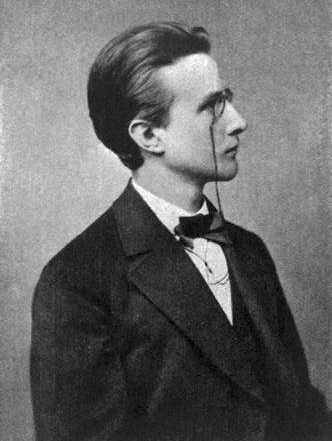
Planck Obtained His Degree in 1879
量子論の創始者としてのプランク
プランクは、量子論の創始者の一人としてその名を知られています。
彼の貢献は、科学界に大きな影響を与えました。
プランクとは?量子論の創始者の一人とその影響
プランクは、1858年にドイツで生まれました。
彼は物理学者であり、特に量子論の分野での研究で知られています。
彼はエネルギーの量子化という概念を提唱し、これが現代の量子力学の基礎となりました。
彼の研究は、当時の物理学の常識を覆すものであり、多くの科学者に影響を与えました。
量子論の創始者としてのプランク
プランクは、量子論の創始者の一人としてその地位を確立しました。
彼は、エネルギーが連続的ではなく、個々の「量子」という単位で存在するという考えを提案しました。
これにより、物理現象の説明が可能となり、新たな物理学の枠組みが生まれました。
プランクの研究は、その後の科学の発展に大きな影響を与えました。
彼の提唱した量子論は、アインシュタインやボーアなどの科学者によって発展させられ、現代の量子力学の基礎となりました。
また、プランクの研究は、光の量子化やエネルギーの波動性など、さまざまな分野において重要な発見をもたらしました。
プランクは、量子論の創始者としてその名を刻み、科学界に大きな貢献をしました。
彼の研究は、現代の物理学の基礎を築いただけでなく、科学の進歩にも大いに寄与しました。
彼の功績は、今なお称えられています。
Planck: Pioneer of Quantum Theory
Max Planck is renowned as one of the pioneers of quantum theory.
His contributions have had a profound impact on the scientific community.
Who is Planck? Pioneer of Quantum Theory and His Influence
Born in 1858 in Germany, Max Planck was a physicist known particularly for his research in quantum theory.
He proposed the concept of energy quantization, which became the foundation of modern quantum mechanics.
His research overturned conventional wisdom in physics at the time and influenced many scientists.
Pioneer of Quantum Theory
Planck solidified his position as one of the founders of quantum theory.
He suggested that energy exists in discrete units called “quanta,” rather than continuously.
This enabled explanations of physical phenomena and gave rise to a new framework in physics.
Planck’s research profoundly influenced the subsequent development of science.
His quantum theory, developed further by scientists like Einstein and Bohr, laid the groundwork for modern quantum mechanics.
Moreover, Planck’s studies led to significant discoveries in various fields, including the quantization of light and the wave-particle duality of energy.
As a pioneer of quantum theory, Planck etched his name in history and made substantial contributions to the scientific community.
His work not only laid the foundation of modern physics but also greatly advanced scientific progress.
His achievements continue to be celebrated to this day.
プランクの生涯
プランクの生涯は、物理学を専攻することから始まりました。
彼は若い頃から科学に興味を持ち、特に光の性質に着目して研究を進めました。
大学教授への道を歩む中で、プランクは量子論の創始者の一人としてその名を知られるようになりました。
彼はエネルギーの量が離散的であることを示すために、プランク定数という概念を提唱しました。
研究生活は順調に進み、プランクは数々の成果を上げました。
彼の研究は、光の波動性と粒子性の両方を説明することに貢献しました。
しかし、第一次大戦が勃発すると、プランクの研究は一時中断を余儀なくされました。
彼は従軍し、戦争の影響を受けながらも研究を続けました。
戦後、プランクはドイツ物理学界の代表として活躍しました。
彼は国際的な交流を通じて、量子論の普及に努めました。
しかし、ナチス政権が台頭すると、プランクは彼らのイデオロギーに反対する立場を明確にしました。
彼は自由な科学の追求を守るために奮闘しました。
晩年に入ると、プランクは数々の栄誉を受けました。
彼は数々の賞を受賞し、その功績は広く認められました。
プランクの生涯は、物理学界に大きな影響を与えました。
彼の研究は現代の量子論の基礎となり、科学の進歩に大きく貢献しました。
彼の功績は今もなお称えられています。
物理学を専攻
プランクは、物理学の分野で重要な貢献をした人物の一人です。
彼は、物理学を専攻し、その研究成果で多くの人々に影響を与えました。
プランクは、物理学を専攻するために大学に進学しました。
彼は物理学の基礎を学び、さらに深い知識を得るために努力しました。
彼の熱意と才能は、教授陣に認められ、将来有望な若手研究者として注目されました。
大学を卒業した後、プランクは大学教授への道を歩み始めました。
彼は優れた教育者としての才能を発揮し、多くの学生に物理学の魅力を伝えました。
また、彼は研究にも力を入れ、数々の成果を上げました。
プランクの最も重要な業績は、量子論の創始者の一人としての地位です。
彼は、エネルギーの放射に関する研究を通じて、プランク定数を発見しました。
この定数は、量子論の基礎となる重要な要素であり、現代物理学の発展に大きな影響を与えました。
第一次大戦が勃発すると、プランクは従軍しました。
彼は戦争の中で苦難を経験しましたが、その経験が彼の研究にも反映されました。
彼は戦争の影響を受けながらも、物理学の研究を続けました。
また、プランクはドイツ物理学界の代表としても活躍しました。
彼は国内外で講演し、研究の成果を広く発表しました。
彼の研究は、多くの物理学者に影響を与え、彼の名声を高めました。
しかし、ナチス政権が台頭すると、プランクはその立場に苦悩しました。
彼はナチスのイデオロギーに反対し、自由な学問の追求を守るために奮闘しました。
彼の勇気と信念は、多くの人々に勇気と希望を与えました。
プランクの晩年は、学問への情熱を失わずに過ごしました。
彼は引退後も研究を続け、新たな発見を重ねました。
彼の功績は、物理学の分野だけでなく、人々の心にも深い影響を与えました。
プランクは、物理学の分野で数々の業績を残した偉大な科学者です。
彼の研究は、現代物理学の基礎を築き、多くの発展をもたらしました。
彼の生涯と業績は、後世の研究者にとっての手本となるでしょう。
Max Planck’s Life
Max Planck’s journey began with a focus on physics.
From a young age, he harbored a fascination with science, particularly delving into the nature of light.
As he pursued the path to becoming a university professor, Planck became known as one of the founders of quantum theory.
He proposed the concept of energy existing in discrete units, known as Planck’s constant, to demonstrate energy’s quantized nature.
His research progressed smoothly, yielding numerous accomplishments.
His studies contributed to explaining both the wave and particle aspects of light.
However, with the outbreak of World War I, Planck’s research faced an inevitable pause.
He served in the military, continuing his research amidst the impacts of war.
After the war, Planck emerged as a prominent figure in the German physics community.
Through international exchanges, he endeavored to promote quantum theory.
Yet, as the Nazi regime rose to power, Planck unequivocally opposed their ideology.
He fought ardently to uphold the pursuit of free scientific inquiry.
In his later years, Planck received numerous honors.
His achievements were widely recognized and celebrated.
Max Planck’s life profoundly influenced the physics community.
His research laid the foundation for modern quantum theory and made significant contributions to scientific progress.
His legacy continues to be honored to this day.
Focus on Physics
Max Planck is one of the prominent figures who made significant contributions in the field of physics.
He specialized in physics and his research achievements influenced many.
Max Planck pursued university education to specialize in physics.
He studied the fundamentals of physics and worked hard to gain deeper knowledge.
His enthusiasm and talent were acknowledged by the faculty, marking him as a promising young researcher.
After graduating from university, Max Planck began his path towards becoming a university professor.
He displayed his talent as an excellent educator, captivating many students with the charm of physics.
Moreover, he dedicated himself to research and achieved numerous breakthroughs.
One of Planck’s most significant accomplishments is his position as one of the founders of quantum theory.
Through his research on energy radiation, he discovered Planck’s constant.
This constant became a crucial element underlying quantum theory and greatly influenced the development of modern physics.
When World War I erupted, Planck enlisted in military service.
He experienced hardships during the war, which also impacted his research.
Despite the challenges of war, he persevered in his pursuit of physics research.
Additionally, Max Planck played a significant role as a representative of the German physics community.
He delivered lectures both domestically and internationally, widely disseminating the results of his research.
His research influenced many physicists, elevating his reputation.
However, with the rise of the Nazi regime, Max Planck faced internal conflicts.
He opposed Nazi ideology and fought passionately to safeguard the pursuit of free academic inquiry.
His courage and beliefs inspired many people with courage and hope.
In his later years, Max Planck maintained his passion for academia.
Even after retiring, he continued his research and made new discoveries.
His achievements left a deep impact not only in the field of physics but also in the hearts of people.
Max Planck is a great scientist who left numerous accomplishments in the field of physics.
His research laid the foundation for modern physics and brought about many developments.
His life and achievements will serve as a role model for future researchers.
プランクの業績
プランクは、量子論の創始者の一人として知られています。
彼の業績には、原子論への貢献、黒体放射についての研究、そして量子力学への影響があります。
まず、プランクは原子論への貢献において重要な役割を果たしました。
彼は、エネルギーが量子として存在することを提唱しました。
これにより、物質の微細な構造や振る舞いを理解するための基礎が築かれました。
また、プランクは黒体放射についての研究でも重要な成果を上げました。
彼は、物体が放射するエネルギーが連続的ではなく、離散的なエネルギー量(量子)であることを示しました。
この研究は、量子力学の基礎となる重要な発見でありました。
そして最後に、プランクの業績は量子力学への大きな影響を与えました。
彼の提唱した量子の概念は、後の量子力学の発展につながりました。
量子力学は、現代物理学の重要な分野であり、プランクの業績がその基礎を築いたと言えます。
プランクは、量子論の創始者の一人として、原子論への貢献、黒体放射についての研究、そして量子力学への影響によって、科学界で大きな評価を受けています。
彼の業績は、現代物理学の基礎を築いた重要なものであり、その功績は今もなお称えられています。
原子論への貢献
プランクの業績
プランクは、量子論の創始者の一人として知られています。
彼の業績は多岐に渡りますが、まずは原子論への貢献について見てみましょう。
プランクは、19世紀末から20世紀初頭にかけて、原子論の研究に取り組んでいました。
彼は、物質が微小な粒子から構成されているという考え方に基づき、原子の存在を証明しました。
この貢献により、物理学の世界では原子論が広く受け入れられるようになりました。
また、プランクは黒体放射についても研究を行いました。
黒体放射とは、ある物体が熱を加えられたときに放射する電磁波のことです。
プランクは、この現象を説明するために、エネルギーが離散的な量でしか放射されないという仮説を提唱しました。
これが後の量子論の基礎となりました。
そして、プランクの研究は量子力学への影響も与えました。
彼の提唱したエネルギーの量子化の概念は、後の量子力学の発展に大きく貢献しました。
量子力学は、原子や分子の振る舞いを説明するための理論であり、現代の物理学の基礎となっています。
プランクの原子論への貢献は、物理学の世界に大きな影響を与えました。
彼の研究成果は、現代の科学の発展に欠かせないものとなっています。
黒体放射についての研究
プランクは、量子論の創始者の一人として知られています。
彼の業績は数多くありますが、その中でも特に注目されるのが黒体放射についての研究です。
黒体放射とは、熱を帯びた物体が放射する電磁波のことです。
プランクは、この現象を説明するために、エネルギーが量子という個々の単位で放出されるという仮説を提唱しました。
これは、当時の物理学者たちにとっては革命的な考え方であり、量子力学の基礎となりました。
プランクの研究は、当初は黒体放射の理論的な説明を目指していましたが、その後、彼は量子力学の発展にも大きく貢献しました。
彼の提唱した量子仮説は、後の物理学の発展に大きな影響を与えました。
プランクの業績は、原子論への貢献だけでなく、黒体放射についての研究や量子力学への影響も含まれています。
彼の研究は、現代の物理学の基礎を築く上で欠かせないものとなっています。
量子力学への影響
プランクの業績
プランクは、量子論の創始者の一人として知られています。
彼の業績は、原子論への貢献、黒体放射についての研究、そして量子力学への影響に分けられます。
原子論への貢献
プランクは、原子論の発展に大きな貢献をしました。
彼は、エネルギーが離散的に存在することを示すために、プランク定数という概念を導入しました。
これにより、光や熱などのエネルギーの量が離散的な単位で存在することが明らかになりました。
黒体放射についての研究
プランクは、黒体放射についての研究でも重要な業績を残しました。
彼は、黒体放射のエネルギー分布を説明するために、プランクの放射法則を提案しました。
この法則は、物体の温度に応じてエネルギーがどのように分布するかを示すものであり、後の量子力学の基礎となりました。
量子力学への影響
プランクの業績は、量子力学の発展にも大きな影響を与えました。
彼のプランク定数は、量子力学の基本的な概念であり、エネルギーの離散性を示すために使用されています。
また、プランクの放射法則も、量子力学の理論の基礎となっています。
プランクの研究は、光や物質の振る舞いを理解するための重要な手がかりを提供しました。
プランクの業績は、現代の物理学の基礎を築く上で欠かせないものです。
彼の貢献により、私たちは量子力学という革新的な理論を得ることができました。
プランクの研究は、科学の進歩において不可欠な存在であり、今なお多くの研究者に影響を与え続けています。
Max Planck’s Achievements
Max Planck is renowned as one of the founders of quantum theory.
His achievements encompass contributions to atomic theory, research on blackbody radiation, and influence on quantum mechanics.
Firstly, Planck played a crucial role in advancing atomic theory.
He proposed that energy exists in discrete quanta, laying the groundwork for understanding the intricate structure and behavior of matter.
Additionally, Planck achieved significant results in his studies of blackbody radiation.
He demonstrated that the energy emitted by objects is not continuous but exists in discrete packets of energy (quanta).
This research constituted a pivotal discovery that underpinned the foundation of quantum mechanics.
Lastly, Planck’s contributions had a profound impact on quantum mechanics.
His conceptualization of quantum principles paved the way for subsequent developments in quantum theory.
Quantum mechanics remains a critical field in modern physics, built upon the foundations established by Planck’s achievements.
Max Planck, recognized as one of the founders of quantum theory, has received widespread acclaim in the scientific community for his contributions to atomic theory, research on blackbody radiation, and influence on quantum mechanics.
His accomplishments laid essential groundwork in modern physics, and his legacy continues to be celebrated today.
Contributions to Atomic Theory
Max Planck’s Achievements
Max Planck is recognized as one of the founders of quantum theory.
His achievements span a wide range, but let’s first look at his contributions to atomic theory.
From the late 19th to the early 20th century, Planck focused on the study of atomic theory.
Based on the idea that substances are composed of tiny particles, he provided evidence for the existence of atoms.
This contribution led to the widespread acceptance of atomic theory in the world of physics.
Moreover, Planck also conducted research on blackbody radiation.
Blackbody radiation refers to the electromagnetic waves emitted when an object is heated.
To explain this phenomenon, Planck hypothesized that energy is emitted only in discrete units.
This hypothesis laid the foundation for quantum theory.
And finally, Planck’s research also influenced quantum mechanics.
His concept of energy quantization made a significant contribution to the development of quantum mechanics.
Quantum mechanics is a theory that explains the behavior of atoms and molecules and forms the basis of modern physics.
Planck’s contributions to atomic theory had a profound impact on the world of physics.
His research results are indispensable to the development of modern science.
Research on Blackbody Radiation
Max Planck is known as one of the founders of quantum theory.
He has many achievements, but one that stands out is his research on blackbody radiation.
Blackbody radiation refers to the electromagnetic waves emitted by objects heated to high temperatures.
Planck proposed a hypothesis that energy is emitted in discrete individual units to explain this phenomenon.
This was a revolutionary idea for physicists at the time and became the foundation of quantum mechanics.
Initially, Planck’s research aimed to provide a theoretical explanation for blackbody radiation, but later, he made significant contributions to the development of quantum mechanics.
His quantum hypothesis had a profound impact on the subsequent development of physics.
Planck’s achievements include not only contributions to atomic theory but also research on blackbody radiation and influence on quantum mechanics.
His research provides important clues for understanding the behavior of light and matter.
Planck’s contributions are essential to laying the foundation of modern physics.
Thanks to his contributions, we have gained an innovative theory called quantum mechanics.
Planck’s research is indispensable in the progress of science and continues to influence many researchers today.
Impact on Quantum Mechanics
Max Planck’s Achievements
Max Planck is known as one of the founders of quantum theory.
His achievements are divided into contributions to atomic theory, research on blackbody radiation, and impact on quantum mechanics.
Contributions to Atomic Theory
Planck made significant contributions to the development of atomic theory.
He introduced the concept of Planck’s constant to demonstrate that energy exists in discrete units.
This revealed that the amount of energy such as light and heat is distributed in discrete units.
Research on Blackbody Radiation
Planck has also made significant achievements in his research on blackbody radiation.
He proposed Planck’s radiation law to explain the energy distribution of blackbody radiation.
This law shows how energy is distributed depending on the temperature of the object and became the foundation of quantum mechanics.
Impact on Quantum Mechanics
Planck’s achievements had a significant impact on the development of quantum mechanics.
His Planck constant is a fundamental concept of quantum mechanics that demonstrates the discreteness of energy.
Furthermore, Planck’s radiation law laid the theoretical foundation for quantum mechanics.
Planck’s research provided important clues for understanding the behavior of light and matter.
Planck’s contributions are essential to laying the foundation of modern physics.
His achievements in physics have greatly influenced the progress of science.
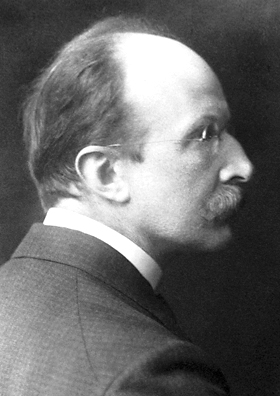
Plank in 1918: Awarded the Nobel Prize in Physics
プランクの思想
プランクの思想
プランクは、量子論の創始者の一人として知られています。
彼の思想には、マッハに対する批判と彼の宗教観が含まれています。
マッハに対する批判
プランクは、マッハの考え方に対して批判的でした。
マッハは、科学の進歩において経験的な事実のみを重視し、理論的な仮説を排除する立場をとっていました。
しかし、プランクは理論の重要性を強調し、理論が実験結果を導くことができると主張しました。
彼は、理論的な枠組みがなければ科学の進歩は制限されると考えていました。
プランクの宗教観
プランクは科学者として知られていますが、彼は同時に宗教的な信念も持っていました。
彼は神の存在を信じており、自然の法則や現象は神の創造によって成り立っていると考えていました。
また、彼は科学と宗教は相補的なものであり、互いに排斥するものではないという立場を取っていました。
プランクの思想は、彼の科学的な功績と同様に重要です。
彼の批判的な態度と理論的なアプローチは、量子論の発展に大きな影響を与えました。
また、彼の宗教観は、科学と宗教の融合を提案する一つの視点となりました。
プランクの思想は、彼の業績とともに今日でも多くの人々に影響を与えています。
マッハに対する批判
プランクは、量子論の創始者の一人として知られています。
彼の思想には、マッハに対する批判と宗教観が含まれています。
まず、マッハに対する批判についてです。
プランクは、マッハの考え方に対して疑問を持ちました。
マッハは、物理学において観測可能な現象のみを扱うべきだと主張していましたが、プランクはそれに反対しました。
彼は、観測されない現象も存在する可能性があると考え、それを研究することの重要性を主張しました。
この考え方が後の量子論の発展につながることとなりました。
また、プランクは宗教観にも深い関心を持っていました。
彼は科学と宗教を両立させることを試みました。
彼は、科学の進歩が宗教的な信念と矛盾することはないと考えていました。
むしろ、科学の発展が宗教的な信念をより深めることができると信じていました。
彼の宗教観は、彼の科学的な研究にも影響を与えたと言われています。
プランクの思想は、彼の時代においても今日でも多くの人々に影響を与えています。
彼のマッハに対する批判や宗教観は、量子論の発展に大きな影響を与えただけでなく、科学と宗教の関係についても新たな考え方を提供しました。
彼の貢献は、現代の物理学や哲学においても高く評価されています。
プランクの宗教観
プランクは科学者としての業績だけでなく、宗教観についても深い思索をしていました。
彼は物理学者としての研究において、神秘的な要素を感じることがありました。
プランクは、自然の法則が存在することを信じていましたが、それがどのようにして成り立つのかについては、科学的な解明が難しいと考えていました。
彼は、「神の意思によって自然の法則が創られたのではないか」という仮説を持っていました。
プランクは、自然の法則が絶対的なものであるという信念を持っていましたが、その背後には何かしらの意図や目的が存在するのではないかと考えていました。
彼は、宇宙や自然の秩序には神の存在があるのではないかと信じていたのです。
プランクの宗教観は、彼の科学的な研究にも影響を与えていました。
彼は自然の法則の理解において、神秘的な要素を重視していたのです。
彼の宗教観は、彼の研究をさらに深めるきっかけとなりました。
プランクの宗教観は、彼の科学的な業績とは別の側面でありながらも、彼の研究において重要な役割を果たしていました。
彼の宗教観は、彼の思考や洞察力に深みを与え、量子論の創始者としての地位を確立する一助となったのです。
Plank’s Philosophy
Plank is known as one of the founders of quantum theory.
His philosophy includes critiques of Mach and his religious views.
Critique of Mach
Plank was critical of Mach’s approach.
Mach emphasized empirical facts in scientific progress and dismissed theoretical hypotheses.
In contrast, Plank emphasized the importance of theory and argued that theories can lead to experimental results.
He believed that without a theoretical framework, scientific progress would be limited.
Plank’s Religious Views
While known as a scientist, Plank also held religious beliefs.
He believed in the existence of God and that natural laws and phenomena were created by God.
Moreover, he viewed science and religion as complementary rather than conflicting.
Plank’s philosophy is as important as his scientific achievements.
His critical attitude and theoretical approach significantly influenced the development of quantum theory.
Additionally, his religious views proposed a perspective of integrating science and religion.
Plank’s philosophy continues to influence many people today, alongside his scientific legacy.
プランクの評価
プランクの評価については、彼の量子力学への貢献とナチスへの対応に焦点が当てられます。
量子力学への貢献に対する評価
プランクは量子力学の創始者の一人として高く評価されています。
彼はプランク定数の発見により、光の量子化を提唱しました。
この理論は当時の物理学界に大きな衝撃を与え、後の量子力学の発展につながりました。
そのため、プランクの貢献は非常に重要とされています。
ナチスへの対応についての評価
一方で、プランクのナチスへの対応については賛否が分かれています。
彼はナチス政権下で科学者協会の会長を務めることを余儀なくされましたが、彼自身は反ナチスの立場を取っていました。
彼はナチスの圧力に屈せず、ユダヤ人科学者の追放を阻止するなどの努力をしました。
しかし、彼がナチスに協力していたという見方もあります。
このようなプランクのナチスへの対応については、様々な意見が存在し、評価は分かれています。
以上がプランクの評価についての概要です。
彼の量子力学への貢献は高く評価されていますが、ナチスへの対応については評価が分かれています。
量子力学への貢献に対する評価
プランクは、量子論の創始者の一人として非常に高い評価を受けています。
彼の最も重要な貢献は、プランク定数の発見であり、これによって量子力学の基礎が築かれました。
量子力学へのプランクの貢献は非常に大きく、その重要性は広く認識されています。
彼は、エネルギーの放射が連続的ではなく、離散的な量(量子)であることを示しました。
これは、物質の微視的な振る舞いを理解する上で革命的な発見であり、量子力学の基礎を確立するきっかけとなりました。
一方、プランクのナチスへの対応については、賛否が分かれています。
彼はナチスの時代に活動していたため、一部の人々からは彼の行動に対して批判的な意見もあります。
しかし、彼はナチス政権下での研究活動を続けることで、科学の発展に貢献し続けました。
プランクの量子力学への貢献は非常に大きく、彼の功績は広く認められています。
彼の発見は、現代の物理学や科学全般に多大な影響を与えており、その重要性は今もなお高く評価されています。
彼の研究への評価は、彼の科学的な業績に基づいて行われるべきです。
ナチスへの対応についての評価
プランクは量子論の創始者の一人として知られています。
彼の貢献は非常に大きく、量子力学の発展に大きく寄与しました。
そのため、彼の評価は非常に高いです。
一方で、プランクのナチスへの対応については賛否が分かれています。
彼はナチスの時代に生きていたため、政府との関係を持たざるを得ませんでした。
しかし、彼はナチスのイデオロギーには反対しており、自身の信念と矛盾する行動を取ることはありませんでした。
プランクはナチスの圧力に屈せず、独自の研究を続けました。
彼は多くのユダヤ人科学者を支援し、彼らの命を救うために尽力しました。
また、彼はナチスの要求に従わず、研究所を閉鎖することもありませんでした。
プランクのナチスへの対応に対する評価は、彼の行動によって分かれています。
一部では彼の勇気と信念を称える声もありますが、一部では彼がより積極的に抵抗すべきだったという批判もあります。
しかし、彼の研究への貢献やユダヤ人科学者への支援など、彼の人道的な行動も評価されています。
彼は自身の研究に専念しながらも、人道的な価値を守ることを選びました。
プランクのナチスへの対応については、その時代の複雑な状況を考慮しなければなりません。
彼の行動は一人の科学者としての責任と、政治的な圧力との間でのバランスを取ることを余儀なくされた結果だと言えます。
プランクの評価は、彼の科学的な業績と人道的な行動を総合的に考える必要があります。
彼の量子論への貢献は間違いなく偉大であり、彼の人道的な行動も称賛に値するものです。
彼の評価は多様であり、それぞれの立場からの意見が存在します。
Evaluation of Planck
Planck’s evaluation focuses on his contributions to quantum mechanics and his response to the Nazis.
Evaluation of Contributions to Quantum Mechanics
Planck is highly regarded as one of the founders of quantum theory.
His discovery of Planck’s constant proposed the quantization of light, which had a profound impact on the physics community at the time and laid the groundwork for the development of quantum mechanics.
Therefore, Planck’s contributions are considered extremely important.
Evaluation of Response to the Nazis
On the other hand, opinions are divided regarding Planck’s response to the Nazis.
He was compelled to serve as president of the Kaiser Wilhelm Society under the Nazi regime, yet he personally held anti-Nazi views.
He resisted Nazi pressure and made efforts to prevent the expulsion of Jewish scientists.
However, some view his actions as collaborating with the Nazis.
There are diverse opinions on Planck’s response to the Nazis, reflecting the complexity of his circumstances and varying evaluations.
In summary, this outlines an overview of Planck’s evaluation.
While his contributions to quantum mechanics are highly praised, opinions differ regarding his response to the Nazis.
Evaluation of Contributions to Quantum Mechanics
Planck is highly esteemed as one of the pioneers of quantum theory.
His most significant contribution was the discovery of Planck’s constant, laying the foundation for quantum mechanics.
Planck’s contribution to quantum mechanics was monumental, widely recognized for its importance.
He demonstrated that energy radiates not continuously but in discrete amounts (quanta), revolutionizing our understanding of microscopic behaviors of matter and establishing the basis of quantum mechanics.
However, opinions are mixed regarding Planck’s response to the Nazis.
Living during the Nazi era, he unavoidably had dealings with the government.
Yet, he opposed Nazi ideology and did not act in contradiction to his beliefs.
Planck resisted Nazi pressures and continued his scientific research.
He supported many Jewish scientists and made efforts to save their lives.
Planck’s evaluation regarding his response to the Nazis varies.
Some commend his courage and principles, while others criticize that he could have been more actively resistant.
Nevertheless, his humanitarian actions, such as supporting Jewish scientists and maintaining his research institute, are also appreciated.
Planck’s response to the Nazis must be understood within the complex context of his time.
His actions were a result of balancing his responsibilities as a scientist and the political pressures of the era.
Planck’s evaluation should consider both his scientific achievements and his humanitarian values.
His contributions to quantum theory are undeniably great, and his humanitarian actions are commendable.
His evaluation encompasses diverse viewpoints, each reflecting different perspectives.
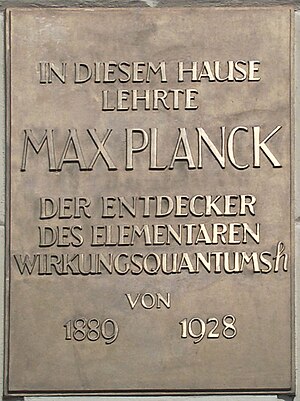
Plate Installed at Humboldt University Berlin
プランクという人物
プランクとは、量子論の創始者の一人であり、物理学において重要な貢献をした人物です。
彼は1858年にドイツで生まれ、1947年に亡くなりました。
プランクは物理学の分野で多くの業績を残し、その中でも特に有名なのは「プランク定数」の発見です。
プランク定数は、光のエネルギーが離散的な量子として存在することを示すものであり、これが量子論の基礎となりました。
彼の研究は、光の性質や物質の振る舞いについての理解を深めることにつながりました。
プランクの業績は、現代の物理学の基礎を築く上で欠かせないものとなっています。
彼の研究は、量子力学や相対性理論などの発展にも大きな影響を与えました。
プランクの貢献によって、私たちは物理学の新たな世界を見ることができるようになりました。
Plank: Pioneer of Quantum Theory
Max Planck was a pivotal figure in physics, recognized as one of the founders of quantum theory and for his significant contributions to the field. Born in Germany in 1858, he passed away in 1947. Among his many achievements in physics, he is particularly renowned for discovering the “Planck constant.”
This constant demonstrated that light energy exists in discrete packets called quanta, laying the foundation for quantum theory. His research deepened our understanding of the nature of light and the behavior of matter.
Planck’s contributions are indispensable to the foundations of modern physics. His studies profoundly influenced the development of quantum mechanics and relativity theory, opening new vistas in physics.

A Grave in Göttingen
プランクの主な受賞歴
プランクの主な受賞歴は、以下の通りです。
ノーベル物理学賞(1918年):プランクは、量子論の創始者としての業績により、1918年にノーベル物理学賞を受賞しました。
彼の研究は、光の振る舞いに関する新しい理論を提案し、物理学の基礎を変革しました。
クラフォード・メダル(1925年):プランクは、1925年にクラフォード・メダルを受賞しました。
このメダルは、特に素粒子物理学や量子力学に貢献した科学者に贈られるものです。
プランクの量子論の理論は、物理学の新たな分野を開拓するきっかけとなりました。
マックス・プランク・メダル(1929年):プランクは、1929年にマックス・プランク・メダルを受賞しました。
このメダルは、物理学の分野で優れた業績を上げた科学者に贈られるものです。
プランクの量子論の研究は、当時の物理学界に大きな影響を与え、新たな発展をもたらしました。
ヘルムホルツ・メダル(1931年):プランクは、1931年にヘルムホルツ・メダルを受賞しました。
このメダルは、物理学や生理学の分野で優れた業績を上げた科学者に贈られるものです。
プランクの量子論の研究は、物理学だけでなく、他の科学分野にも大きな影響を与えました。
プランクの受賞歴は、彼の量子論の研究が物理学に与えた革新的な影響を示しています。
彼の業績は、現代の科学の基礎を築いたものであり、その貢献は計り知れません。
Max Planck’s Major Awards
Max Planck’s significant awards include the following:
Nobel Prize in Physics (1918): Planck was awarded the Nobel Prize in Physics in 1918 for his pioneering work in quantum theory. His research proposed a new theory on the behavior of light, revolutionizing the foundations of physics.
Copley Medal (1925): Planck received the Copley Medal in 1925. This medal is awarded to scientists who have made outstanding contributions to particle physics and quantum mechanics.
Max Planck Medal (1929): In 1929, Planck was honored with the Max Planck Medal. This medal is bestowed upon scientists who have achieved remarkable accomplishments in the field of physics.
Helmholtz Medal (1931): Planck received the Helmholtz Medal in 1931. This medal recognizes scientists who have made exceptional achievements in physics and physiology.
Planck’s awards underscore the transformative impact of his quantum theory research on physics and beyond. His contributions laid the foundation for modern science, reflecting his invaluable legacy.
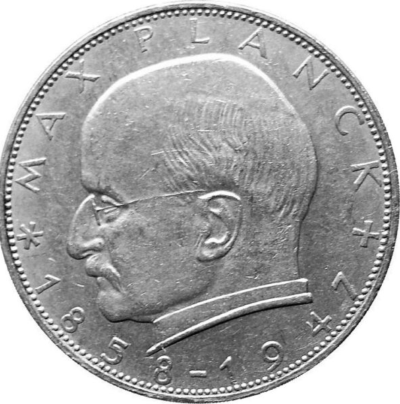
Max Planck Depicted on the 2 Mark Coin
まとめ
プランク定数の発見とその影響:量子論の創始者プランクの貢献
プランクは量子論の創始者の一人であり、彼の発見は現代の物理学において大きな影響を与えました。
彼はエネルギーの量が離散的であることを示し、これが量子力学の基礎となりました。
プランク定数はこの理論の中で重要な役割を果たしており、物理学者たちはこれを使って様々な現象を解明しています。
プランクの貢献は、光の量子性の理解にもつながりました。
彼は黒体放射の研究を通じて、エネルギーが離散的な「量子」として存在することを示しました。
これにより、光が粒子として振る舞うことが明らかになりました。
また、プランクの研究は量子力学の基礎を築く上で重要な役割を果たしました。
彼はエネルギーの量が離散的であることを示すために、プランク定数を導入しました。
この定数は、物理学者たちが量子力学の計算を行う際に必要な要素となっています。
プランクの発見とその貢献は、現代の物理学の基礎を築く上で欠かせないものです。
彼の研究は、我々の世界の理解を深めるだけでなく、新たな科学の分野を開拓するきっかけとなりました。
プランクの功績は今なお称えられており、彼の名前は物理学の歴史に刻まれています。
「プランク定数」の内容
Max Planck(マックス・プランク)は、20世紀初頭の物理学者であり、量子力学の創始者の一人として知られています。
彼の最も有名な貢献の一つが、「プランク定数」(Planck’s constant)に関する理論です。
プランク定数は、1900年にPlanckが提案した物理定数であり、量子理論の基礎を築く重要な要素です。
彼の研究は、黒体放射(black-body radiation)という問題に関連しています。
黒体とは、完全に吸収する・反射する・透過することができない理想的な物質であり、その放射特性を理解するためのモデルが求められていました。
従来の古典物理学では、黒体放射の振る舞いを説明するために、レイリー・ジーンズの法則やウィーンの変位則といった式が提案されていましたが、これらは実験的なデータと合致しきれいませんでした。
そこで、Planckはこの問題に取り組み、新しい仮説を提案しました。
Planckは、エネルギーが連続的ではなく、特定の小さな値(量子)でしか放出されないと仮定しました。
具体的には、振動子(オシレーター)と呼ばれる系のエネルギーが離散的な量子(エネルギー量子)ℎ(プランク定数)の整数倍でしか変化できないという考え方です。
これにより、彼は黒体放射のスペクトルを正確に説明するための新しい放射公式を導き出すことができました。
プランク定数は、物理学における基本的な定数であり、物質の微視的な振る舞いを理解するために広く使用されています。
量子力学の基礎を築き、後の量子理論の発展に大きな影響を与えたこの定数は、物質の振る舞いや光の性質など、さまざまな物理現象の理解に不可欠な概念として、今日まで重要な役割を果たしています。
Summary
Discovery of Planck’s Constant and Its Impact: Contributions of Max Planck, Pioneer of Quantum Theory
Max Planck is recognized as one of the founders of quantum theory, with his discoveries significantly influencing modern physics.
Born in 1858 in Germany, Planck passed away in 1947, leaving behind a legacy of achievements in physics. Among his most famous contributions is the discovery of “Planck’s constant.”
Planck’s constant reveals that energy exists in discrete quanta, forming the foundation of quantum mechanics. This theory revolutionized our understanding of light’s nature and matter’s behavior.
His research extended to understanding the quantum nature of energy through studies on black-body radiation, demonstrating that energy emissions are discrete rather than continuous.
Planck’s findings paved the way for the development of quantum mechanics and its applications in fields like relativity theory.
The significance of Planck’s contributions is underscored by his numerous accolades:
- Nobel Prize in Physics (1918): Awarded for his pioneering work in quantum theory.
- Copley Medal (1925): Recognized for contributions to particle physics and quantum mechanics.
- Max Planck Medal (1929): Acknowledged for outstanding achievements in physics.
- Helmholtz Medal (1931): Awarded for excellence in physics and physiology.
These honors reflect Planck’s pivotal role in shaping the foundations of modern physics and opening new frontiers in scientific inquiry.
“Content of Planck’s Constant”
Max Planck, a physicist of the early 20th century, is renowned as one of the founders of quantum mechanics.
One of his most notable contributions is his theory concerning “Planck’s constant.”
Introduced in 1900, Planck’s constant is a fundamental physical constant integral to quantum theory.
His research stemmed from the study of black-body radiation, an idealized substance that absorbs all incident electromagnetic radiation. Previous attempts to explain its radiation properties, such as Rayleigh-Jeans law and Wien’s displacement law, did not fully align with experimental data.
Planck proposed a new hypothesis to resolve this discrepancy. He postulated that energy is emitted and absorbed in discrete units, or “quanta,” rather than continuously.
Specifically, he theorized that energy changes in systems called oscillators occur only in integer multiples of a small quantity known as ℎ (Planck’s constant).
This groundbreaking approach allowed Planck to derive a new radiation formula that accurately described the spectrum of black-body radiation.
Planck’s constant remains a fundamental constant in physics, essential for understanding the microscopic behavior of matter.
It laid the groundwork for quantum mechanics and significantly influenced subsequent developments in quantum theory.
Today, Planck’s constant continues to play a crucial role in our understanding of various physical phenomena, including the behavior of matter and the properties of light.
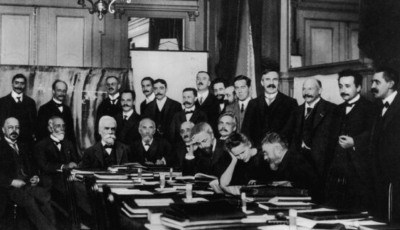
Max Planck at the Solvay Conference of 1911, second from the left in the back row
参考文献
プランク定数の発見とその影響:量子論の創始者プランクの貢献
プランクは、量子論の創始者の一人として知られています。
彼の貢献は、科学界に大きな影響を与えました。
彼の研究は、物質の微小な振る舞いを理解するための基礎を築きました。
プランクの最も重要な貢献は、プランク定数の発見です。
彼は、エネルギーの量が離散的であることを示しました。
これは、物質がエネルギーを放出または吸収するとき、そのエネルギーが離散的な値を取ることを意味します。
この発見は、光の量子仮説の基礎となりました。
プランクは、光がエネルギーをパケットとして放出することを示しました。
これにより、光の波動性と粒子性の両方を説明することができるようになりました。
プランクの研究は、量子力学の発展にもつながりました。
彼の仕事は、量子力学の基礎を築くための重要な要素となりました。
彼の発見は、物理学の新たな分野を開拓し、科学の進歩に大いに貢献しました。
プランクの研究に関する参考文献は、以下の通りです。
- Planck, M. (1901). Über das Gesetz der Energieverteilung im Normalspektrum. Annalen der Physik, 309(3), 553-563.
- Planck, M. (1900). Zur Theorie des Gesetzes der Energieverteilung im Normalspectrum. Verhandlungen der Deutschen Physikalischen Gesellschaft, 2, 237-245.
- Kragh, H. (1999). Max Planck: The reluctant revolutionary. Physics World, 12(9), 31-36.
- Mehra, J., & Rechenberg, H. (2001). The historical development of quantum theory. Springer Science & Business Media.
これらの文献は、プランクの研究に関する詳細な情報を提供しています。
彼の貢献に興味を持つ読者にとって、これらの文献は貴重な情報源となるでしょう。
References
Discovery of Planck’s Constant and Its Impact: Contributions of Max Planck, Pioneer of Quantum Theory
Max Planck is renowned as one of the pioneers of quantum theory.
His contributions have had a profound impact on the scientific community.
His research laid the foundation for understanding the microscopic behavior of matter.
One of Planck’s most significant contributions is the discovery of Planck’s constant.
He demonstrated that energy exists in discrete amounts.
This means that when matter emits or absorbs energy, it does so in discrete packets.
This discovery formed the basis of the quantum theory of light.
Planck showed that light emits energy in packets.
This enabled an explanation that incorporates both the wave-like and particle-like nature of light.
Planck’s research also paved the way for the development of quantum mechanics.
His work became a crucial element in establishing the foundations of quantum mechanics.
His discoveries opened up new fields in physics and greatly contributed to the advancement of science.
References on Planck’s research are as follows:
These sources provide detailed information about Planck’s research.
For readers interested in his contributions, these references will be valuable sources of information.
関連項目
プランク定数の発見とその影響:量子論の創始者プランクの貢献
プランク定数の発見により、量子論の基礎が築かれました。
プランクは、物質がエネルギーを放出・吸収する際に、離散的なエネルギー値を持つことを示しました。
この発見は、光の波動性と粒子性の両方を説明するための重要な手がかりとなりました。
関連項目としては、以下が挙げられます。
- アルベルト・アインシュタイン: プランクと同じく、量子論の発展に大きく貢献した科学者です。特に光の粒子性を示す光量子仮説を提唱し、ノーベル物理学賞を受賞しました。
- ニールス・ボーア: プランクの理論を発展させ、原子の構造に関するボーアの原子模型を提案しました。これにより、原子のエネルギー準位やスペクトル線の解釈が可能となりました。
- ウェルナー・ハイゼンベルク: 量子力学の基礎を築いた一人であり、不確定性原理を提唱しました。ハイゼンベルクの理論は、プランクの発見とも関連し、量子論の発展に大きな影響を与えました。
- エルヴィン・シュレーディンガー: シュレーディンガー方程式を提案し、波動関数の理論を確立しました。この理論は、量子力学の基礎となり、プランクの発見とも密接に関連しています。
これらの関連項目を通じて、プランクの発見が量子論の発展に与えた影響や、他の科学者との関連性が明らかになります。
プランクの貢献は、現代の物理学や科学の基礎を築く上で不可欠なものとなっています。
Related Topics
Discovery of Planck’s Constant and Its Impact: Contributions of Max Planck to Quantum Theory
The discovery of Planck’s constant laid the foundation for quantum theory.
Planck demonstrated that when matter emits or absorbs energy, it does so in discrete energy units.
This discovery provided crucial clues to explain both the wave-like and particle-like aspects of light.
Related topics include:
Albert Einstein: Like Planck, Einstein made significant contributions to the development of quantum theory. He particularly proposed the photon hypothesis, demonstrating the particle nature of light, and was awarded the Nobel Prize in Physics.
Niels Bohr: Building on Planck’s theory, Bohr proposed the Bohr model of the atom, which enabled the interpretation of atomic energy levels and spectral lines.
Werner Heisenberg: One of the founders of quantum mechanics, Heisenberg formulated the uncertainty principle. His theories were closely related to Planck’s discoveries and had a profound impact on the development of quantum theory.
Erwin Schrödinger: Schrödinger proposed the Schrödinger equation and established the theory of wave functions. This theory laid the groundwork for quantum mechanics and had close ties with Planck’s discoveries.
Through these related topics, the impact of Planck’s discoveries on the development of quantum theory and his connections with other scientists become evident.
Planck’s contributions remain essential in laying the foundation of modern physics and science.
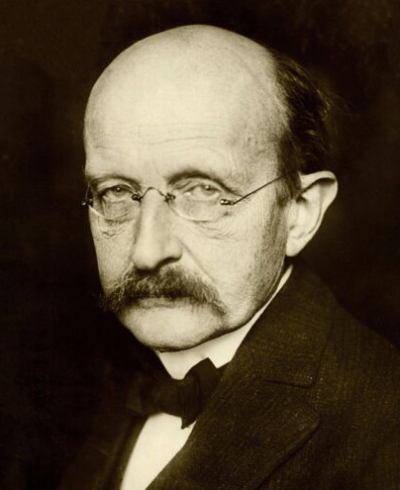
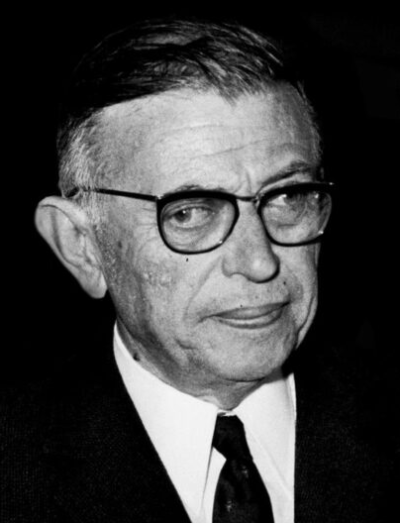

コメント